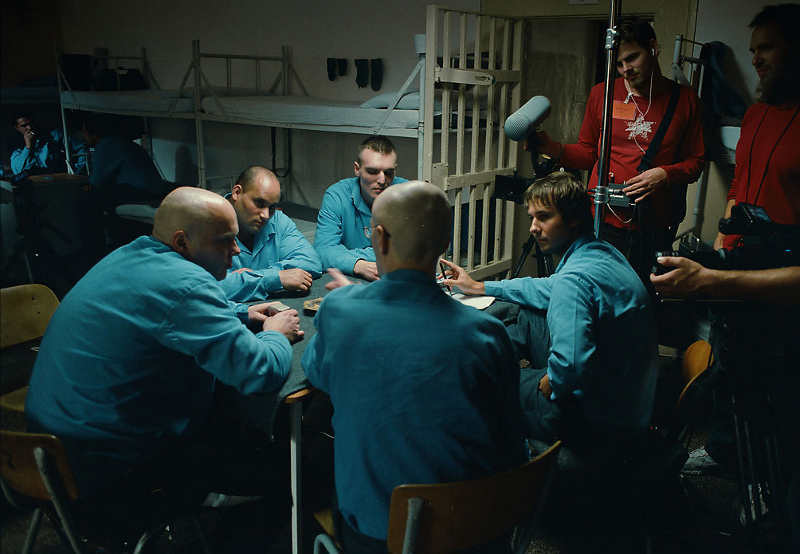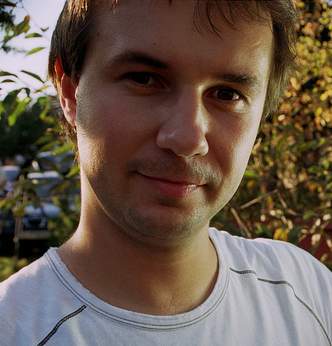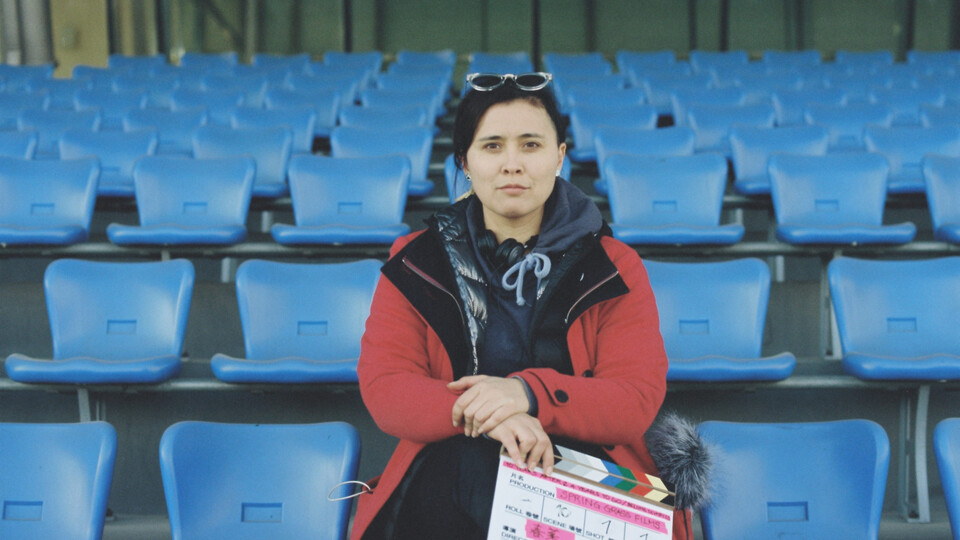Comeback
More than five years ago, I was tempted to make a feature-length film. It was right after the positive reception of my short student film Arsy-Versy. Riding the wave of enthusiasm, I was looking for a theme. In the end, the theme has found me by some kind of coincidence. Once I had shot a short spot about equal opportunities (within an integration project of the European Union) for a French production company in jail. After it was finished, the prison director suggested that I can get back to Ilava with my own project. Years later, I called him, asking if his offer still stood. It did.
I decided to add a screenwriter to my regular working team. I went to Stupava to see Jura Šlauka whom I knew from school. I had a hunch it would be a good idea for him to get some fresh air. And indeed; I found him rooted to the pub floor up to his knees. He seemed more than perfect for the project.
We decided to make a film about long-term prisoners. We have followed their lives behind the prison gate and explored the situations after their release. The film tells the stories of two prisoners who were willing to co-operate. I remember how we entered the prison cell for the first time, dressed up as inmates to collect material. I was ashamed of my prejudice. At the same time, I was fascinated by the space we have entered. We started getting to know our protagonists, co-operating with them and respecting each other. Gradually we have established a relationship. I guess it’s due to this fact that the film is not a mere report on the phenomenon of recidivism but also a journey beyond that. Despite the vicious circle of failures and tragedies, our protagonists are essentially sensitive, vulnerable and fragile human beings.

Comeback
When I think about it, these guys actually feel at home behind bars. Each of them is looking forward to getting out, however, when their time comes, they know too well that it’s just for a holiday. It remotely reminds me of a short summer romance and its contact with reality. When the romantic deception ceases, frustration comes. It is a frustration from the inability to get integrated. The ten or twenty years are missing. You have basically nothing. In prison, you have made some 100, 200 Euro at best. Everything is new. You have no place to go. The dive into the alcohol or possibly drug pool is merely a logical outcome. You are but one step away from recidivism. As a consequence, you go back to where you are taken care of. If you are lucky, you can try again in a few years.
The film was a long-distance run. I’m happy that it’s finished. When something drags on for years it’s immensely exhausting. You are constantly waiting for the moment when you can say stop and let the film out among people. When that moment finally comes, you take a deep breath and ride the wave of bliss from finishing the job. However, since I am a filmmaking recidivist, I already have new projects on the way.
|
|
Miro RemoMiro Remo is originally from the industrial town of Ladce (Slovakia), where he attended elementary school. He barely finished his secondary school (gymnazium) in Považská Bystrica. As soon as he was accepted into the documentary film-directing program at the Academy of Performing Arts, he left his mechatronics studies to study in the film atelier of Vlado Balco at the Academy, where he currently continues to work. Miro’s most successful film so far is a portrait of his uncle and grandmother called Arsy-Versy. Comeback is his feature-length cinema debut. |
Comeback by Miro Remo will have a world premiere at Karlovy Vary International Film Festival. It was shortlisted for the documentary competition section.
Translated into English by Tereza Chocholová



